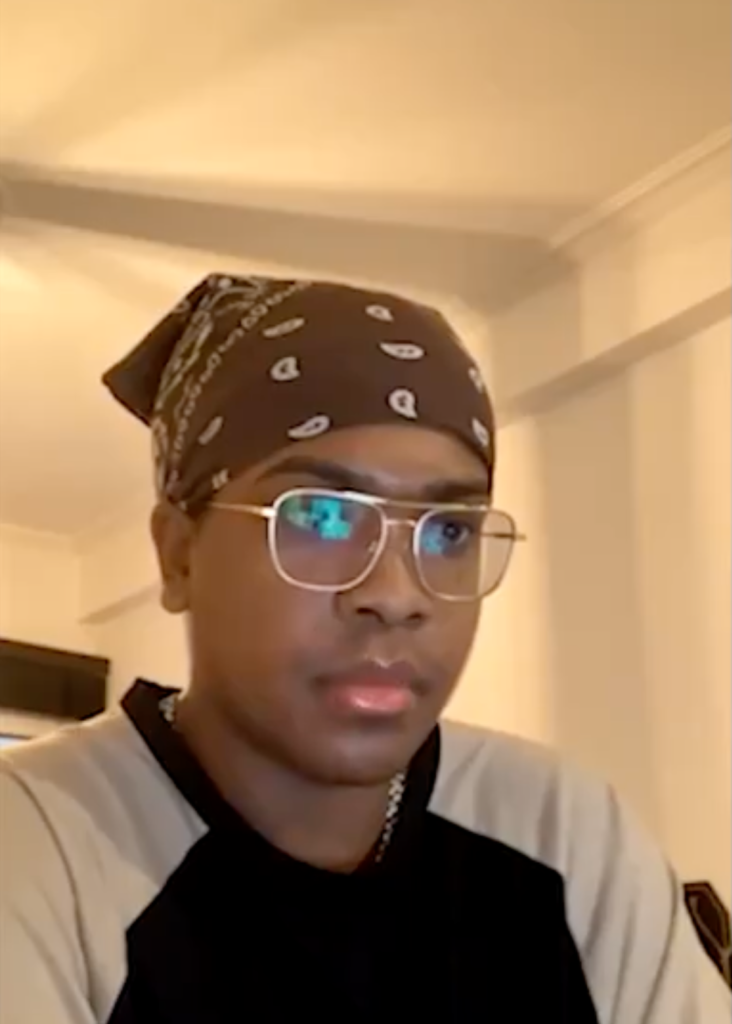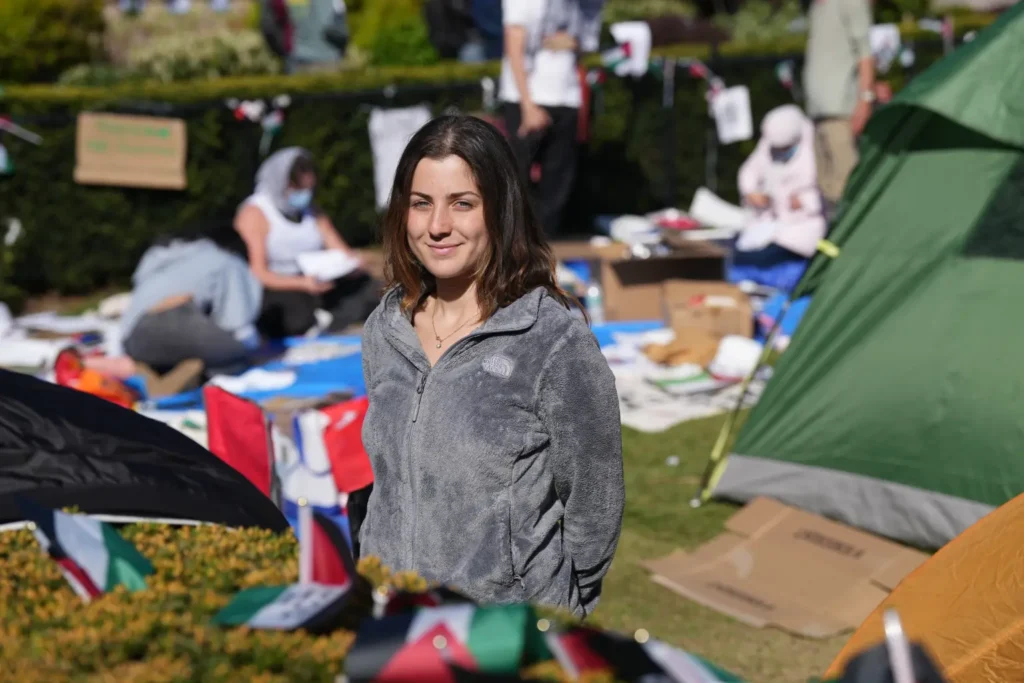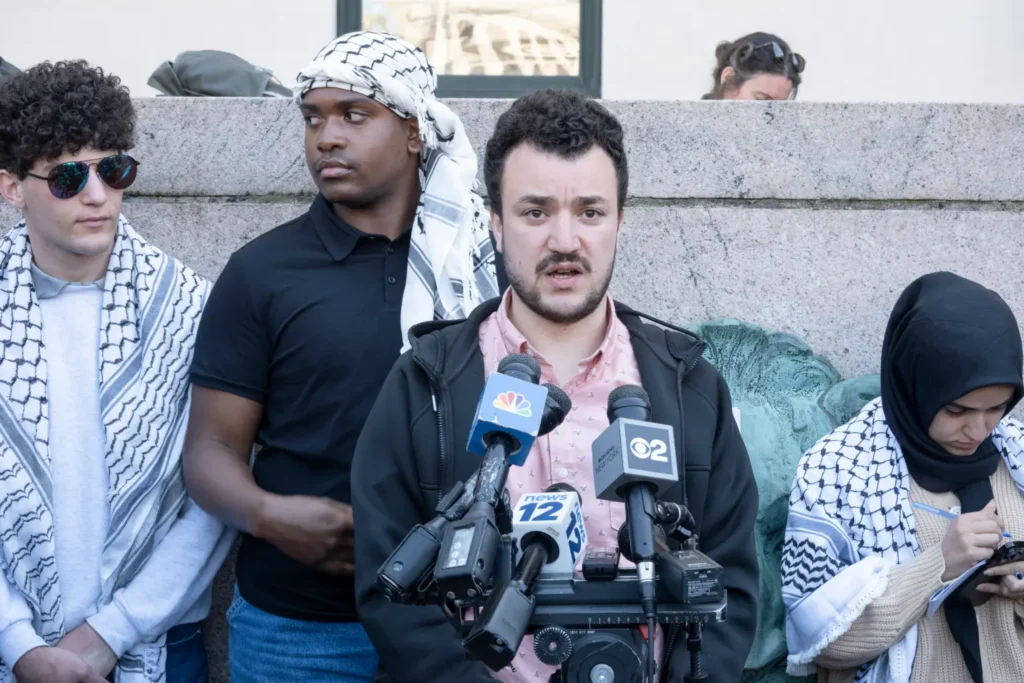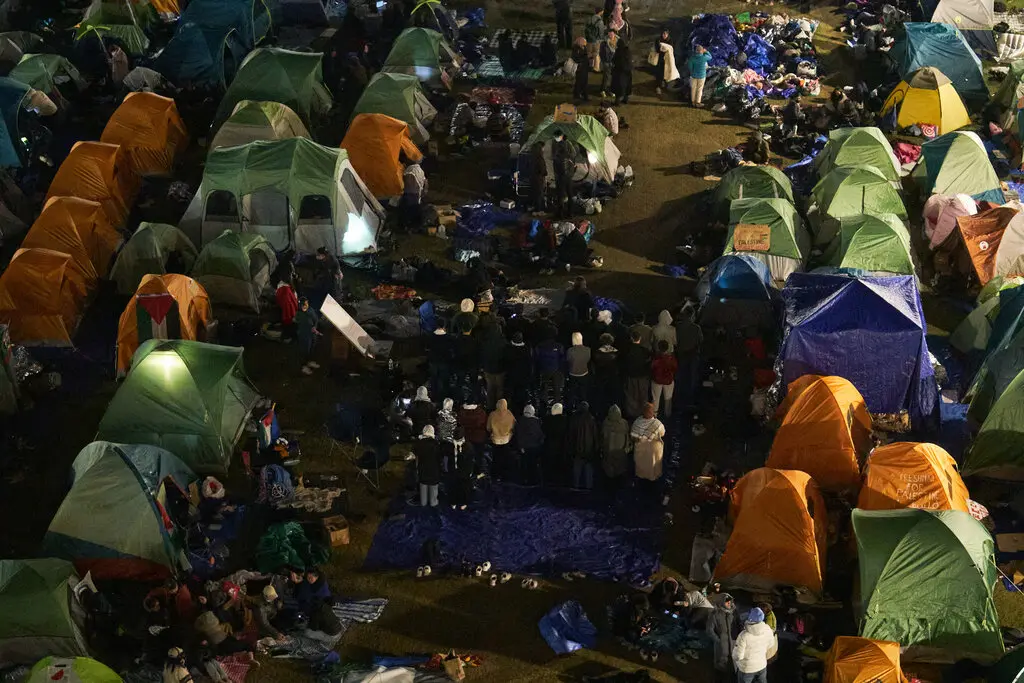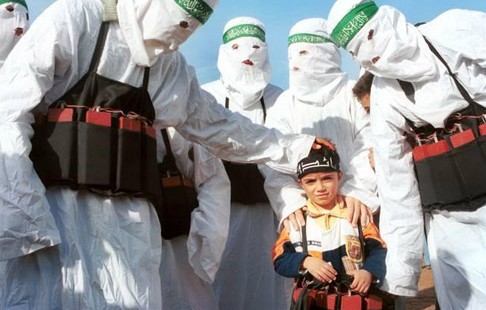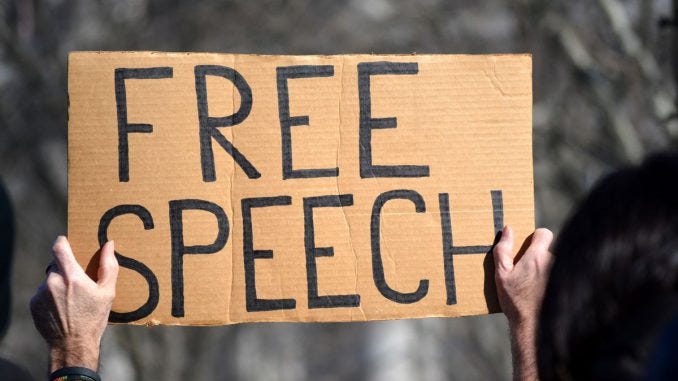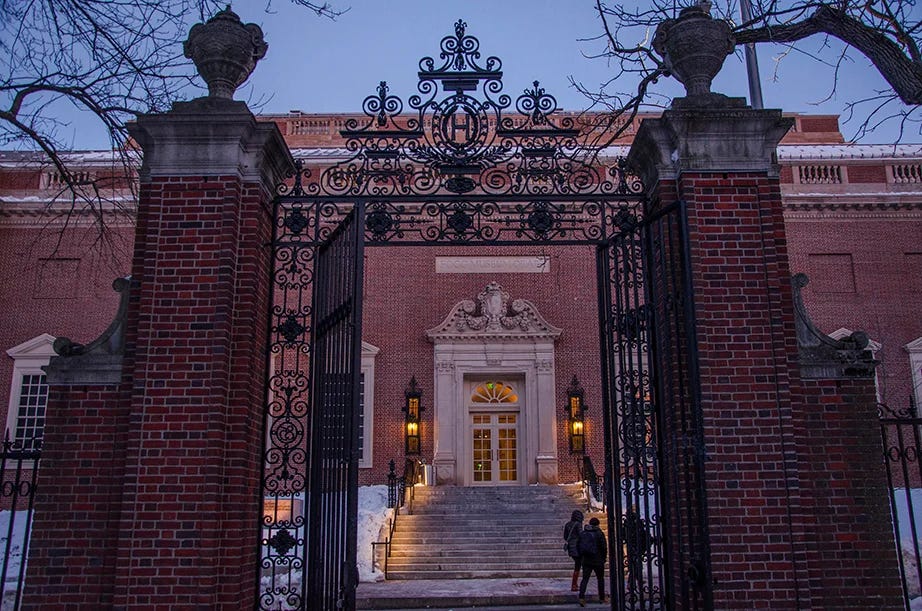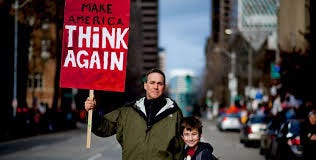Rooting out the rot in the faculty

Soon after the Oct. 7 atrocities by Hamas, a visiting scholar at Columbia University declared, “Yes, I’m with Hamas and Hezbollah and Islamic Jihad.” The man, Mohamed Abdou, was brought onto campus for the spring 2024 semester and teaches a weekly class on “Decolonial-Queerness & Abolition.” A website at UC Berkeley, where he recently spoke, describes him as “a North African-Egyptian Muslim anarchist interdisciplinary activist-scholar of Indigenous, Black, critical race, and Islamic studies, as well as gender, sexuality, abolition, and decolonization.”
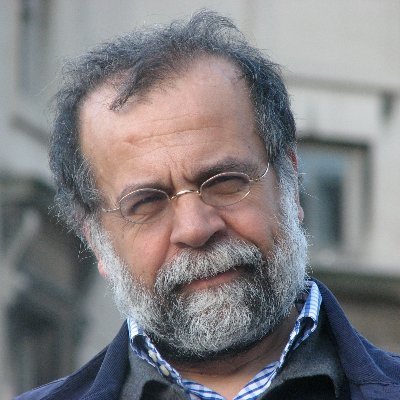
Another faculty member, Iranian studies and comparative literature Prof. Hamid Dabashi, in 2018 wrote on Facebook that “Every dirty treacherous ugly and pernicious happening in the world just wait for a few days and the ugly name ‘Israel’ will pop up in the atrocities.” As reported by the New York Post, in a separate post “Dabashi also allegedly bashed Zionists as ‘hyenas’ – sparking calls from a pro-Israel student group for the professor to be rebuked.” Critics circulated a petition calling for his firing.
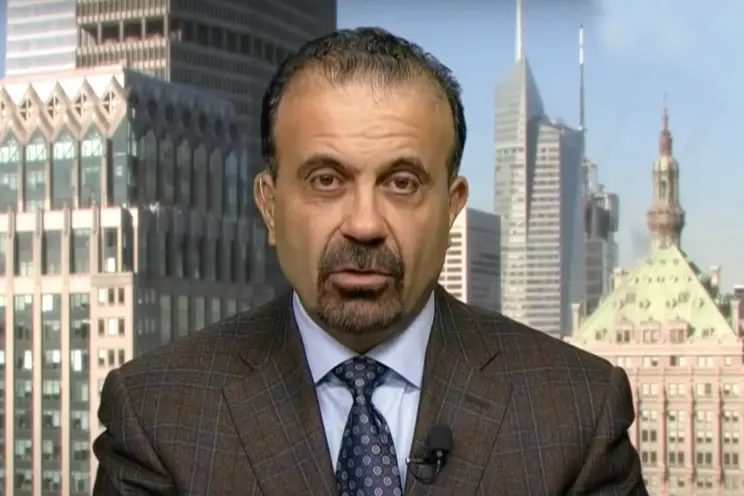
A third Columbia figure, Joseph Andoni Massad, last October described the Hamas attack of Oct. 7 as a “resistance offensive,” according to The New York Times. Massad, who teaches modern Arab politics and intellectual history at Columbia, where he also received his doctorate in political science, has long been known for his anti-Israel positions, the paper reported. A day after the Hamas horrors, he published an article in The Electronic Intifada replete with adjectives such as “shocking success” and “astonishing.” “No less astonishing was the Palestinian resistance’s takeover of several Israeli settler-colonies near the Gaza boundary and even as far away as 22 kms, as in the case of Ofakim,” he wrote. “Perhaps the major achievement of the resistance in the temporary takeover of these settler-colonies is the death blow to any confidence that Israeli colonists had in their military and its ability to protect them.”
Is it any wonder, then, that otherwise intelligent students at the Ivy League school demonstrated against Israeli actions in Gaza? With such propagandists lecturing in classrooms otherwise known for careful and respectful scholarship, should we expect nothing else from students presumably ignorant of the long history of Hamas terrorism and the group’s origins and aims? What can we expect when professors recast the Oct. 7 monstrosity as “just one salvo in an ongoing war between an occupying state and the people it occupies” in a statement signed by more than 100 Columbia professors? When they say the massacre could be regarded “as an occupied people exercising a right to resist violent and illegal occupation,” as they did?
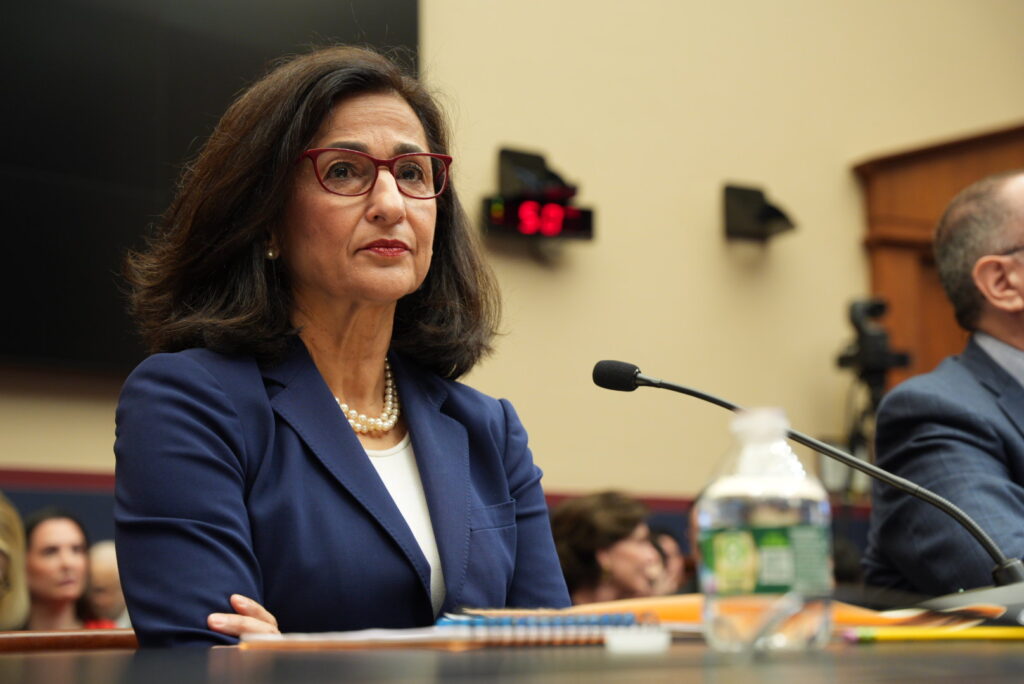
Belatedly, Nemat “Minouche” Shafik is taking aim at least at a few such toxic academics. At her April 17 hearing in Congress, the Columbia president said that Massad and a questionable law school professor, Katherine M. Franke (who is associated with the university’s Center for Palestine Studies) — were under investigation for making “discriminatory remarks,” the Times reported. She also said that Abdou “will never work at Columbia again.”
Of course, Shafik also took aim on April 30 at demonstrators who damaged and occupied Hamilton Hall on the campus. Her action in bringing in the NYPD to arrest the 40-50 occupiers was necessary, in my view, because they had gone well beyond setting up tents and chanting. They were, instead, disrupting the work of administrators whose offices were in the building, were damaging property and, in the case of outsiders, were criminally trespassing on university grounds. Far beyond merely exercising legitimate free speech, they posed a real danger on the campus.
Some number of them – and possibly some encampment demonstrators – were not even associated with Columbia, but were “professional outside agitators,” according to New York officials and university officials. Mayor Eric Adams blamed such outsiders for radicalizing students. For their part, Columbia officials said of the Hamilton occupiers: “We believe that the group that broke into and occupied the building is led by individuals who are not affiliated with the University. Sadly, this dangerous decision followed more than a week of what had been productive discussions with representatives of the West Lawn encampment.”

Indeed, it appears the occupiers were not even associated with Columbia University Apartheid Divest, the group that had been in talks with university officials. In a statement, CUAD identified the protesters occupying Hamilton as an “autonomous group.” In other words, these outsiders co-opted the students, using them as fodder.
Still, at best, the protesting Columbia students and probably many at other schools around the country are distressingly ignorant. I’m sure that many are responding to the ugliness of the Gaza war, an horrific affair that, in my view, is a necessary assault on a murderous and suicidal group that cannot be permitted within rocket range of Israel. It appears that the students, as they react to the ugly news of the day without any historical context, are responding to the propaganda spewed by some of their teachers.
It’s also possible that the students, both at Columbia and outside, are responding to what one researcher called “the ovation model.” Prof. Omar Wasow of the University of California, Berkeley, compares this effect to the response of a theater audience, saying “if some people in the front stand up, then other people start to stand up, and it’s a cascade through the auditorium.” By that theory, protestors in the media capital of New York City are mimicked by others who read and see about the action and are keen to join in.
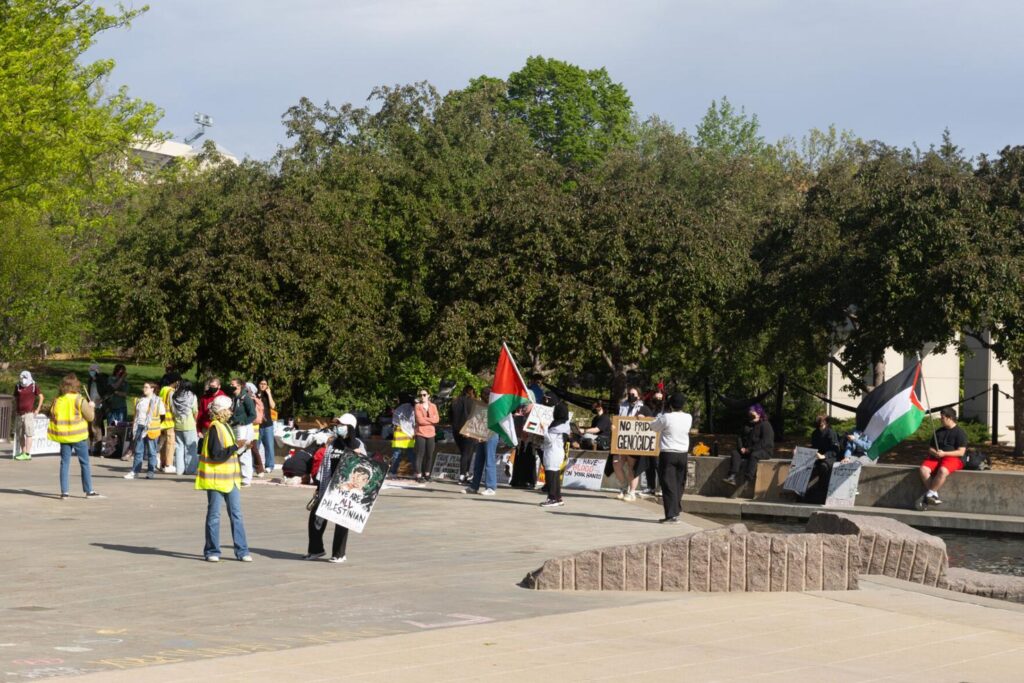
Even the University of Nebraska-Lincoln, where I taught for 14 years, is apparently subject to this effect. A so-far small group of protestors gathered today on campus for a daylong series of “trainings and teach-ins.” The group, which includes outsiders from Nebraskans for Peace, does not appear to include in any of its “teach-ins” views from anti-Hamas groups or pro-Israel groups. No one, so far as I can tell, will be calling on Hamas to lay down its arms and seek peaceful coexistence. So, one must wonder what sort of education the Nebraskans will get on these matters?
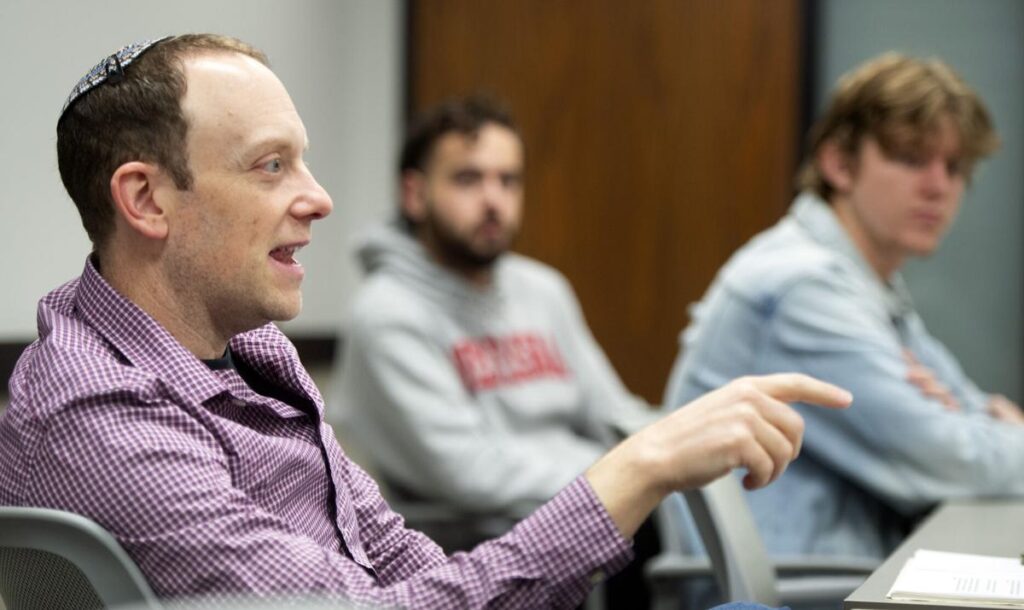
Will any of them be invited to take a course taught by a friend, Prof. Ari Kohen, that looks at the issues from other than a one-sided view? In that class, which he has taught for several years, Kohen acknowledges that “there is unlikely to be a single, simple solution to the many interrelated problems that we will identify…. But in recognizing the depth and complexity of those problems, we will undoubtedly learn a great deal about what any solution must include.”
Universities in the past have risen to the occasion when demagogues spewed hate. At UNL, for instance, Nazi appeared on campus a few years ago. “When one of these students was ‘outed’ by groups like Unicorn Riot and the Nebraska Antifascists, many students called for removing him from campus for his speech,” Kohen wrote last fall. “University leaders considered the demands and rejected them. Instead, the university threw itself behind more speech, namely rallies against hate and a campaign about the inclusivity we want to promote on campus. A “Hate Will Never Win” rally drew 1,500 people to the school’s basketball stadium, and the school helped distribute T-shirts with that message to anyone who wanted one. The message could be seen all over our campus.”
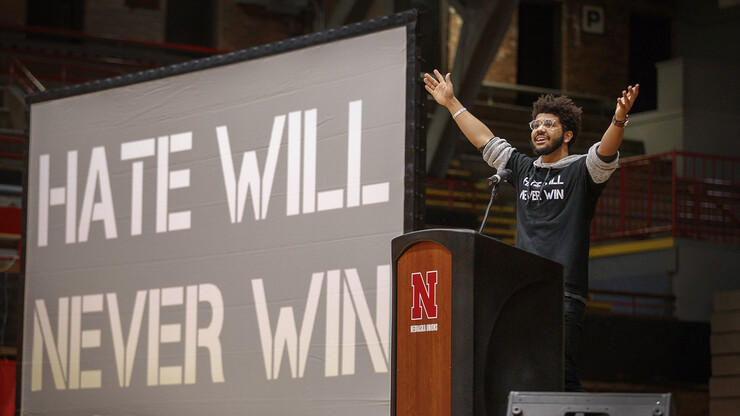
“Jews are being asked to deal with a level of hostility that feels like targeted harassment due to its repetition, intensity and pervasiveness,” Kohen wrote. “And, rather than people telling us they’ve got our back, we’re being told, especially on social media and especially from people on the left, that perhaps we’re being overly dramatic about our feelings. The university presidents should have been able to explain that people can say odious things but that all of the rest of us must respond by calling out those things for being odious. They should also have been able to explain that calling for genocide almost certainly would amount to harassment and an unsafe environment but that we have to work together to be clear about what is and what isn’t targeted harassment.”
Should Columbia distribute pro-Israel T-shirts? Would large-scale rallies denouncing Hamas as murderous and suicidal be effective? So long as there are faculty members at the school who espouse noxious views, such measures would be fruitless, except for those from on or off campus who think otherwise. Indeed, Jews on campuses including Columbia initially protested for Israel last fall, but they’ve largely been driven into fearful silence, sad spectators in the latest uproars. “I think people make uneducated assumptions,” a young Jewish leader at Columbia told The Washington Post. “They look at Jewish students and assume what they believe. They assume [the Jewish students] want a certain group of people dead, which isn’t true at all, whatsoever. What everyone wants is peace.”
A friend has suggested that the pro-Hamas demonstrations are clarifying and that they have served to reveal the underlying anti-Semitism at some of the nation’s leading universities. Indeed, the growth of such anti-Semitism around the country may be simply on display now at schools, bubbling up from the thugs to the academy, where people should know better. He pointed to a piece by Tablet editor at large Liel Liebovitz, an Israeli who earned his doctorate at Columbia, that argued: “Maybe it’s time to let Columbia, Yale, and other elite schools become what they already basically are: finishing schools for the children of Chinese, Qatari, and other global elites.” Referring to “four years in an airless, ideological gulag,” he argued that such schools are “national security threats that we must address forcefully” and complained that the Columbia faculty “long ago lost its decency, its courage, and its reason.”
Clearly, some of the faculty have lost their ability to reason and to teach students to do so, based on facts. But I’m not ready to toss them all. If this moment gives universities the opportunity to replace the pro-Hamas zealots with real scholars, it will serve us all well. That will take time.
The academic ranks have been infiltrated for years by anti-Israel colleagues who have masterfully driven the Boycott, Divestment, Sanctions effort to the forefront on campuses. It is not accidental that the protestors on many campuses are pressing their schools to divest themselves of securities in companies tied to Israel and to boycott Israeli academic institutions. The idea is to isolate the Jewish state and ultimately destroy it.
Undoing the work of the BDS-supporting faculty will take time. Perhaps driving out the likes of Abdou will be a start.

